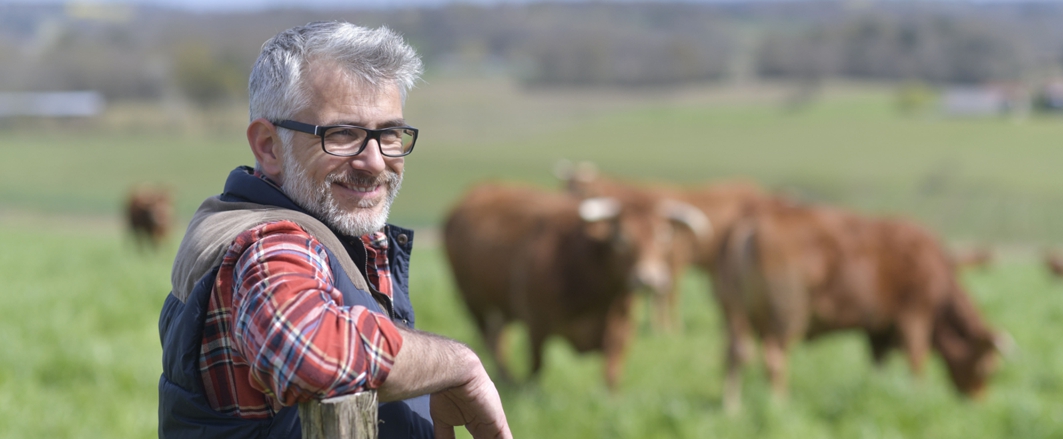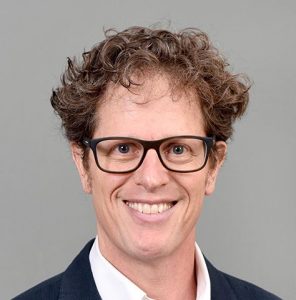
 One just has to hear Peter Byck speak or even spend a little bit of time with him to learn he is not your average professor and not your average anything for that matter. He is engaging, passionate, fun, funny and did I say passionate? And he is very very busy. Peter is the director, producer and writer of Carbon Nation and Soil Carbon Cowboys – an on-going series of short films produced in collaboration with Arizona State University. He is also working with scientists and ranchers on soil health and soil carbon storage research via regenerative grazing. But here is the real reason why I am beyond excited to spend time with Peter and share his story: through his humor, his curious mind and his respectful approach, Peter has successfully found common ground among liberals and conservatives. He knows that these groups are not as polarized as the popular press loves to present. Join me to learn how he works his magic and be prepared to be utterly delighted by this impactful human being.
One just has to hear Peter Byck speak or even spend a little bit of time with him to learn he is not your average professor and not your average anything for that matter. He is engaging, passionate, fun, funny and did I say passionate? And he is very very busy. Peter is the director, producer and writer of Carbon Nation and Soil Carbon Cowboys – an on-going series of short films produced in collaboration with Arizona State University. He is also working with scientists and ranchers on soil health and soil carbon storage research via regenerative grazing. But here is the real reason why I am beyond excited to spend time with Peter and share his story: through his humor, his curious mind and his respectful approach, Peter has successfully found common ground among liberals and conservatives. He knows that these groups are not as polarized as the popular press loves to present. Join me to learn how he works his magic and be prepared to be utterly delighted by this impactful human being.
SUPPORT THE CREATION OF PODCASTS LIKE THIS ONE: BECOME A MEMBER TODAY!
INSIGHTS
- Peter’s personal journey of how he came to this work is phenomenal – the research and the filmmaking. He is a dynamic, delightful, influential human being doing the important work for the planet and all those that call her home. Peter is a professor of practice – and he is holding class on this podcast – don’t miss a minute!
- In 2011, Carbon Nation was released- a film about addressing climate change and the good business opportunities present in taking action on climate.
- As he filmed Carbon Nation, Peter was led to the soil – how did the natural cycles of bison and other hooved animals shed light on how we should be drawing down carbon?
- What is AMP grazing? The farmers that are using this process of farming are spending less time and saving money. Learn more on this podcast!
- How do you find common ground between groups that seem so polarized? What was the profound realization that Peter had when he discovered how one makes common ground? Lots of valuable information shared on this show.
- How did we get to be so polarized based on how we vote or what political party we belong to? Peter has terrific insights to share on how we can move forward – having relevant, vital conversations that matter.
- What is the importance of monoculture versus polyculture farming? One sets up a situation where you are fighting nature and one is a way to work with nature – very important differences. Peter outlines the processes on this podcast.
- Pollinators are an important factor in the work that is being done on our soil and preserving our grasslands – they are great business partners. Peter’s work is studying the impact on pollinators when soil is preserved and when it is not.
- Have you heard of the concept “no till”? When you till soil, you are releasing carbon into the atmosphere and doing damage to the fungi web – Peter shares how to use the process of not tilling the soil to plant seeds. Fascinating and important information shared on this podcast! Nature does not have soil exposed – why would you want to expose it in your agriculture practices?
- The health of the watershed and preserving water in the soil is such an essential benefit of doing farming in the way that Peter’s research is discovering – how droughts are impacting agriculture and the stories around this issue are shared on this podcast; check out Peter’s short film to learn more: A Fence and an Owner
- 85% of the food produced on Earth is from small landholders – the small farmer is still a key part of our food system. Peter wants these farmers to be well paid – find out why this is so important to Peter and should be to all of us. Teachers and farmers need to be raised up – for so many reasons. Learn more on this podcast!
- Did you know that McDonalds is Peter’s first major funding partner for his research? Wrangler, Timberland and a few oil companies and airline manufactures are getting in line – Peter is navigating the process of helping businesses put nature in their business plans.
- What would happen if 25% – 1 out of 4 farmers – went to AMP farming? The quick, positive impact on drawing down carbon would be mind blowing. We can do this together!
GET INFORMED!
- Learn more about Peter and his work on his website; join him on Twitter and Vimeo
- Janine Benyus and the Biomimicry Institute is mentioned on this podcast – listen to Mrs. Green’s podcast featuring their work here: Biomimicry: Imitating Nature
GET ACTIVE!
- Watch Soil Carbon Cowboys and share it today!
- Get your copy of Carbon Nation and join the discussion on Facebook and Twitter.
- Listen to Mrs. Green’s conversation with Maria Rodale from the RODALE Institute: Organic Rise to the Top
- Join Mrs. Green for her conversation with Allan Savory from the Savory Institute: Rethinking Home on the Range
- Watch the short film, THIS FARM IS MEDICINE (mentioned during this podcast)
- Get your copy of Brenda Peterson’s book, Wolf Nation
- Green had a great conversation with Paul Hawken – listen today: Project Drawdown